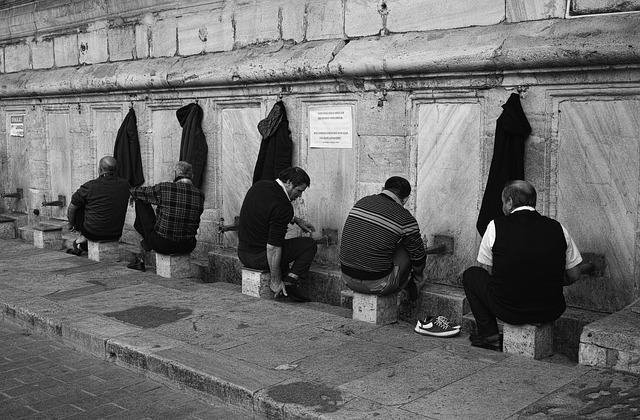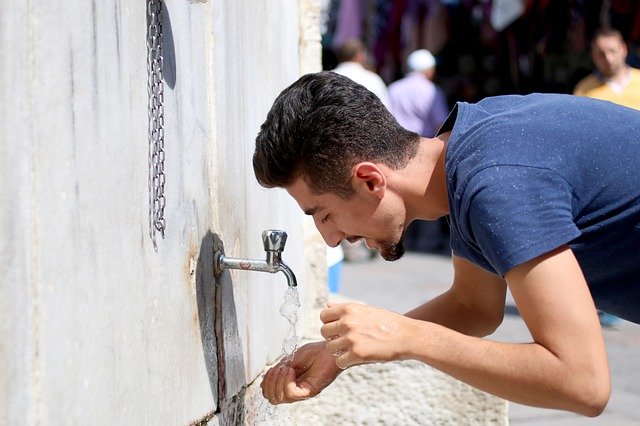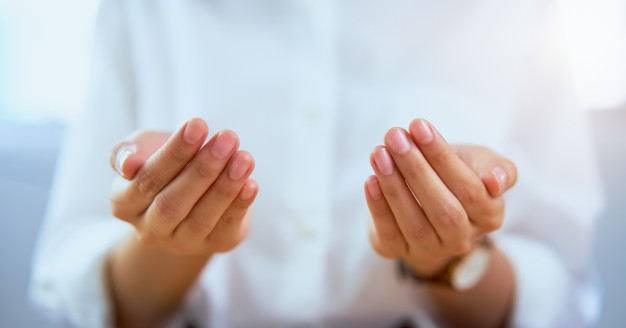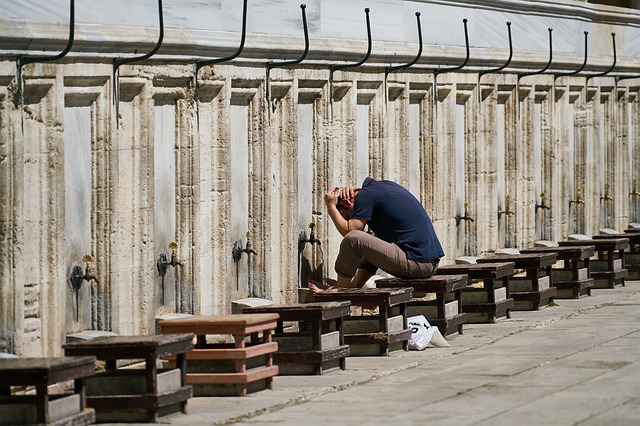Kapanlagi.com - Wudhu is the way Muslims cleanse themselves from minor impurities. Therefore, wudhu is a mandatory act that must always be done before performing prayers and reading the Quran. Wudhu is not just about washing or cleansing certain parts of the body. Like any other worship, there are intentions for wudhu and prayers that need to be recited for blessings.
Wudhu is often interpreted as one of the ways of purification in Islam. By performing wudhu, a Muslim can maintain their purity from minor impurities. Thus, when worshiping Allah SWT, a Muslim is in a state of purity and cleanliness. Therefore, wudhu is a requirement for the validity of prayers. This means that without the correct intention for wudhu and its proper procedures, the prayer can become invalid.
Considering the importance of wudhu in Islam, it is obligatory for every Muslim to understand the intention for wudhu and its procedures. Compiled from various sources, here is an easy-to-understand and practicable explanation of wudhu.
1. Evidence about Wudhu

(credit: pixabay)
Wudhu is an important and fundamental aspect of the Islamic religion. It is proven that the command and recommendation regarding Wudhu came directly from Allah SWT and was reinforced through one of the hadiths of Prophet Muhammad SAW.
Among the evidence about Wudhu is found in the words of Allah SWT in Surah Al-Maidah, verse 6, which states:
"O you who have believed, when you intend to perform prayer, wash your faces and your forearms to the elbows and wipe over your heads and wash your feet to the ankles." (Quran, Al-Maidah, verse 6).
Furthermore, the Prophet emphasized the recommendation to perform Wudhu through one of his hadiths which states:
"Whoever performs Wudhu as the Prophet Muhammad Shallallahu 'alaihi wa Salam demonstrated, his past sins will be forgiven, and his journey to the mosque and his prayer will be rewarded." Hadith narrated by Muslim.
2. Intention of Wudu
Performing wudu is an important aspect of the Islamic religion. Only with wudu, a person can avoid minor impurities and be able to establish prayer. Wudu not only purifies the parts of the body that are washed with water, but also purifies the heart from wrongdoings that have been committed.
To purify the heart, wudu is not enough to just wash the body parts. More than that, before performing wudu, a Muslim needs to recite the intention of wudu with a sincere heart.
The wording of the intention of wudu is as follows:
Nawaitul-wudhuu'a liraf'il-hadatsil-ashghari fardhal lillahi ta'aaalaa.
Meaning:
"I intend to perform wudu to remove minor impurities, as an obligation for the sake of Allah Ta'ala."
3. Procedure of Wudu

(credit: pixabay)
As a valid requirement for prayer, wudu must not be done carelessly. Moreover, wudu must also be performed in an orderly manner. This means that after reciting the intention of wudu, each step in performing wudu must not be skipped or reversed. This is because the procedure of wudu has been directly demonstrated by Prophet Muhammad.
The sequence of wudu according to the teachings of Prophet Muhammad is as follows:
- Washing both palms and spaces between fingers.
- Gargling or brushing teeth with a tooth stick.
- Sniffing water into the nose.
- Wiping the top front part of the head.
- Washing both ears (inside and outside).
- Starting with the right side.
- Rubbing the gaps between fingers, feet, and beard if applicable.
- Performing each step three times.
- Continuously and sequentially from the beginning to the end without any pause.
4. Prayer After Wudhu

(credit: freepik)
To complete wudhu not only with purity but also with blessings, it is recommended to recite a prayer after wudhu. This prayer can be recited after completing all the steps or procedures of wudhu. The prayer is recited like any other prayers, either orally or silently, but it should be based on a sincere heart.
The prayer after wudhu is as follows:
Asyhadu al la ilaha illallah wahdahu la syarika lah, wa asyhadu anna muhammadan 'abduhu wa rasuluhu. Allahumma ij'alni minat tawwabina waj'alni minal mutathahhirin. Subhanaka Allahumma wa bihamdika asyhadu al la ilaha illa Anta astaghfiruka wa atubu ilaik. Wa shallaLlahu 'ala sayyidina Muhammad wa 'ali Muhammad.
Meaning:
"I bear witness that there is no god but Allah, and He has no partner, and I bear witness that Muhammad is His servant and messenger. O Allah, make me among those who repent and make me among those who are purified. You are truly glorified, O Allah, and I praise You. I bear witness that there is no god but You, I seek forgiveness from You, and I repent to You. May the blessings and mercy of Allah always be upon Prophet Muhammad and his family."
5. Things that Invalidate Wudu

(credit: pixabay)
In order to perform the prayer, wudu must not be invalidated. There are several things known to invalidate wudu. If any of these things occur, then the wudu will be considered invalidated, and it must be repeated from the beginning. The things that invalidate wudu include:
1) Discharging something from the two private parts (front and back), such as passing gas, defecating, and urinating.
2) Touching the private parts (front or back) with the palm of the hand or finger without any barrier or cloth.
3) Coming into contact with a non-mahram of the opposite gender, either skin to skin or without any barrier.
4) Losing consciousness due to insanity, falling asleep, fainting, or being intoxicated.
Those are some of the explanations regarding the intention of wudu and its procedure. Hopefully, it is beneficial and can increase our faith as Muslims. Amen.
(kpl/psp)
Disclaimer: This translation from Bahasa Indonesia to English has been generated by Artificial Intelligence.
















